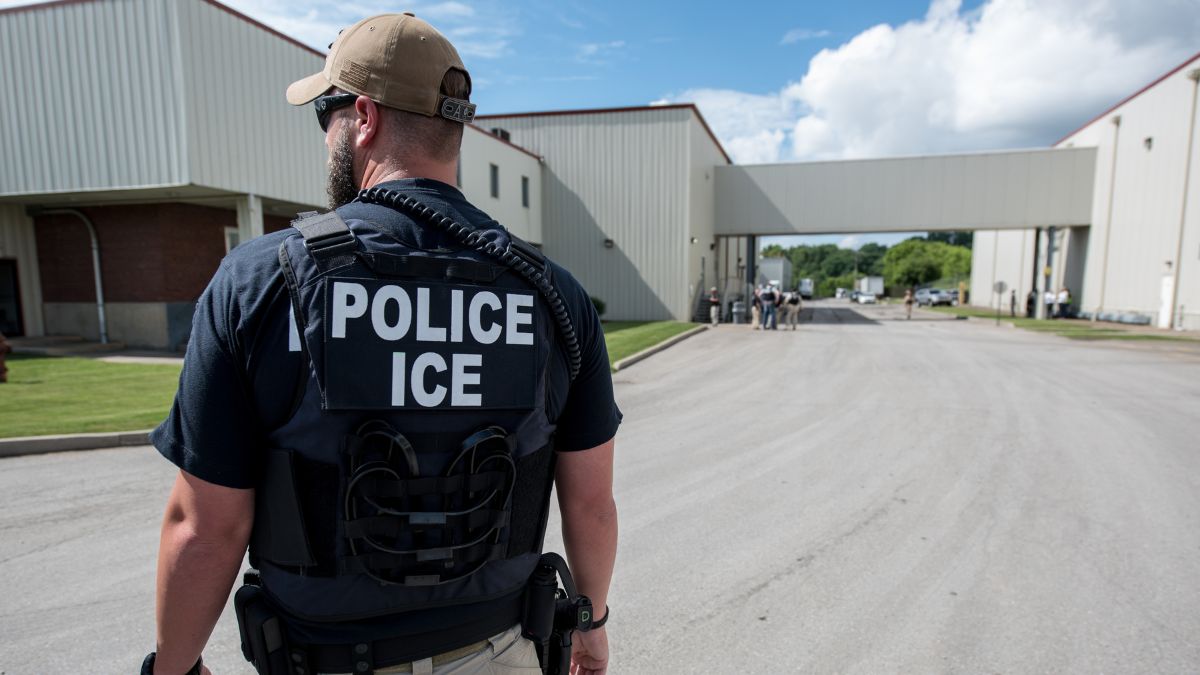
Photo by Smith Collection/Gado/Getty Images
How humane can it be if people keep dying?
A Canadian citizen, 49-year-old Johnny Noviello, died on June 23 while being held by U.S. Immigration and Customs Enforcement (ICE) in Florida. His death is the ninth in ICE custody this year. This latest tragedy, the fourth to happen in a Florida facility, has led Canadian officials to urgently request more information.
The incident raises serious doubts about ICE’s claims that it provides safe and humane conditions for detainees. Noviello first came to the United States in 1988 with a legal visa. Three years later, he became a permanent resident, obtaining a green card. However, his legal status was jeopardized after he was convicted of multiple crimes in Volusia County, Florida.
According to The Guardian, in 2023, he was sentenced to 12 months in prison for drug-related offenses, including racketeering and drug trafficking. The charges involved selling opioids like oxycodone, hydromorphine, and hydrocodone in Daytona Beach. After finishing his prison sentence, Noviello was taken into ICE custody on May 15 of this year. His drug convictions automatically made him eligible for deportation under U.S. law, which allows the government to revoke green cards and remove non-citizens convicted of serious crimes, including drug trafficking.
Canadian citizen dies in ICE custody, like so many others
Despite living in the U.S. for decades as a permanent resident, his criminal record meant he could be deported. However, the details of Noviello’s death are concerning. He was found unresponsive at a federal detention center in Miami. ICE says medical staff at the facility acted quickly, performing CPR and using a defibrillator. Emergency services were also called. Despite these efforts, Noviello did not survive.
His lawyer from the 2023 racketeering case, Daniel Leising, said Noviello had epilepsy and was on medication to control seizures. Leising added that Noviello’s family had worked hard to make sure he received his necessary medications, pointing to a serious health issue that should have been carefully managed while he was detained.
Noviello’s death adds to a disturbing pattern of fatalities in ICE detention facilities. He is the ninth person to die in ICE custody nationwide this year. His death is also the fourth in a Florida facility, raising further questions about the conditions and medical care in that state’s detention centers.
ICE doesn’t even wear uniforms or badges sometimes, making it hard to tell who is a random kidnapper and who works for the government. When forgetting paperwork can lead to your arrest, it is hard to say who is right or wrong, but it’s easier when people keep dying under the ICE’s “care.”
After learning of Noviello’s death, Canada’s foreign minister, Anita Anand, posted on social media that Canadian officials had been notified. She said Canadian consular staff were urgently seeking more details from U.S. authorities about what happened. This official request highlights the international concern and the need for transparency when a foreign citizen dies in another country’s custody.
ICE, which operates under the Department of Homeland Security, released a statement saying, as soon as he started seizing, “Medical staff responded immediately and began administering cardiopulmonary resuscitation, automated external defibrillator shock and called 911.” The gap between ICE’s promises and the repeated deaths in custody has led to growing public and international scrutiny, with countries like Canada calling for a closer look at detention center conditions.



Published: Jun 27, 2025 03:40 pm